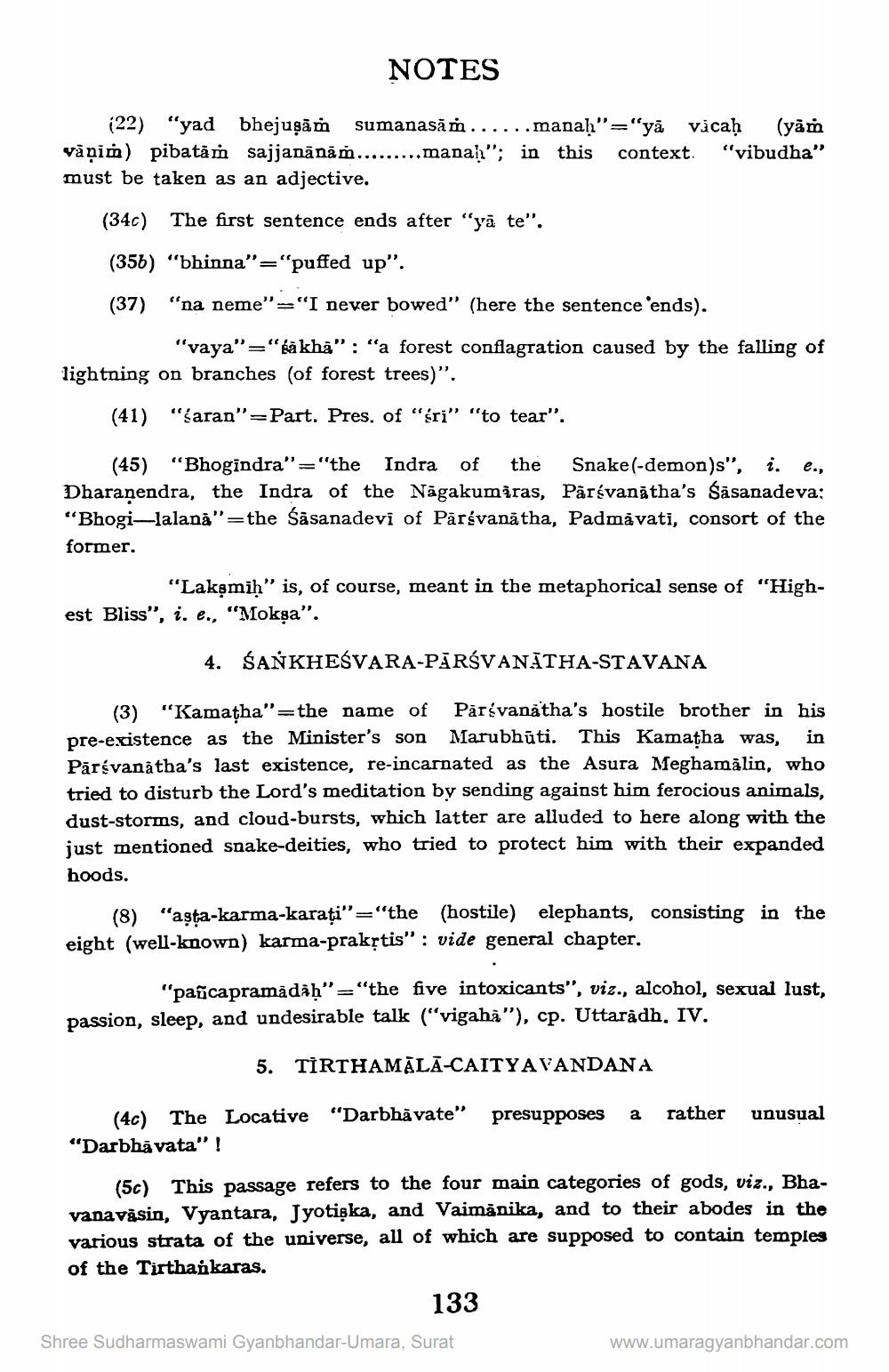________________
NOTES
(22) "yad bhejusām sumanasām ......manah"="ya vicah (yam våạim) pibatām sajjanānāṁ.........manah"; in this context. "vibudha" must be taken as an adjective.
(340) The first sentence ends after "yā te". (356) “bhinna"="puffed up". (37) "na neme"="I never bowed" (here the sentence ends).
"vaya"="fakhā" : "a forest conflagration caused by the falling of lightning on branches (of forest trees)".
(41)
"Saran"=Part. Pres. of "ri" "to tear".
(45) “Bhogindra"="the Indra of the Snake(-demon)s", i. e., Dharanendra, the Indra of the Nāgakumiras, Pārsvanātha's Śāsanadeva: "Bhogi-lalana"=the Sasanadevi of Pārsvanātha, Padmavati, consort of the former.
“Lakşmih" is, of course, meant in the metaphorical sense of “Highest Bliss", i. e., "Mokşa".
4. SANKHEŚVARA-PĀRŚVANĀTHA-STAVANA
(3) "Kamatha"=the name of Pārsvanåtha's hostile brother in his pre-existence as the Minister's son Marubhūti. This Kamatha was, in Pārsvanatha's last existence, re-incarnated as the Asura Meghamälin, who tried to disturb the Lord's meditation by sending against him ferocious animals, dust-storms, and cloud-bursts, which latter are alluded to here along with the just mentioned snake-deities, who tried to protect him with their expanded hoods.
(8) "asta-karma-karati"="the (hostile) elephants, consisting in the eight (well-known) karma-prakstis” : vide general chapter.
"pañcapramadah"="the five intoxicants", viz., alcohol, sexual lust, passion, sleep, and undesirable talk ("vigaha"), cp. Uttaràdh, IV.
5. TIRTHAMĀLĀ-CAITYAVANDANA
(4c) The Locative "Darbhāvate" presupposes a rather unusual "Darbhāvata"!
(50) This passage refers to the four main categories of gods, viz., Bhavanavasin, Vyantara, Jyotiska, and Vaimānika, and to their abodes in the various strata of the universe, all of which are supposed to contain temples of the Tirthankaras.
133
Shree Sudharmaswami Gyanbhandar-Umara, Surat
www.umaragyanbhandar.com




